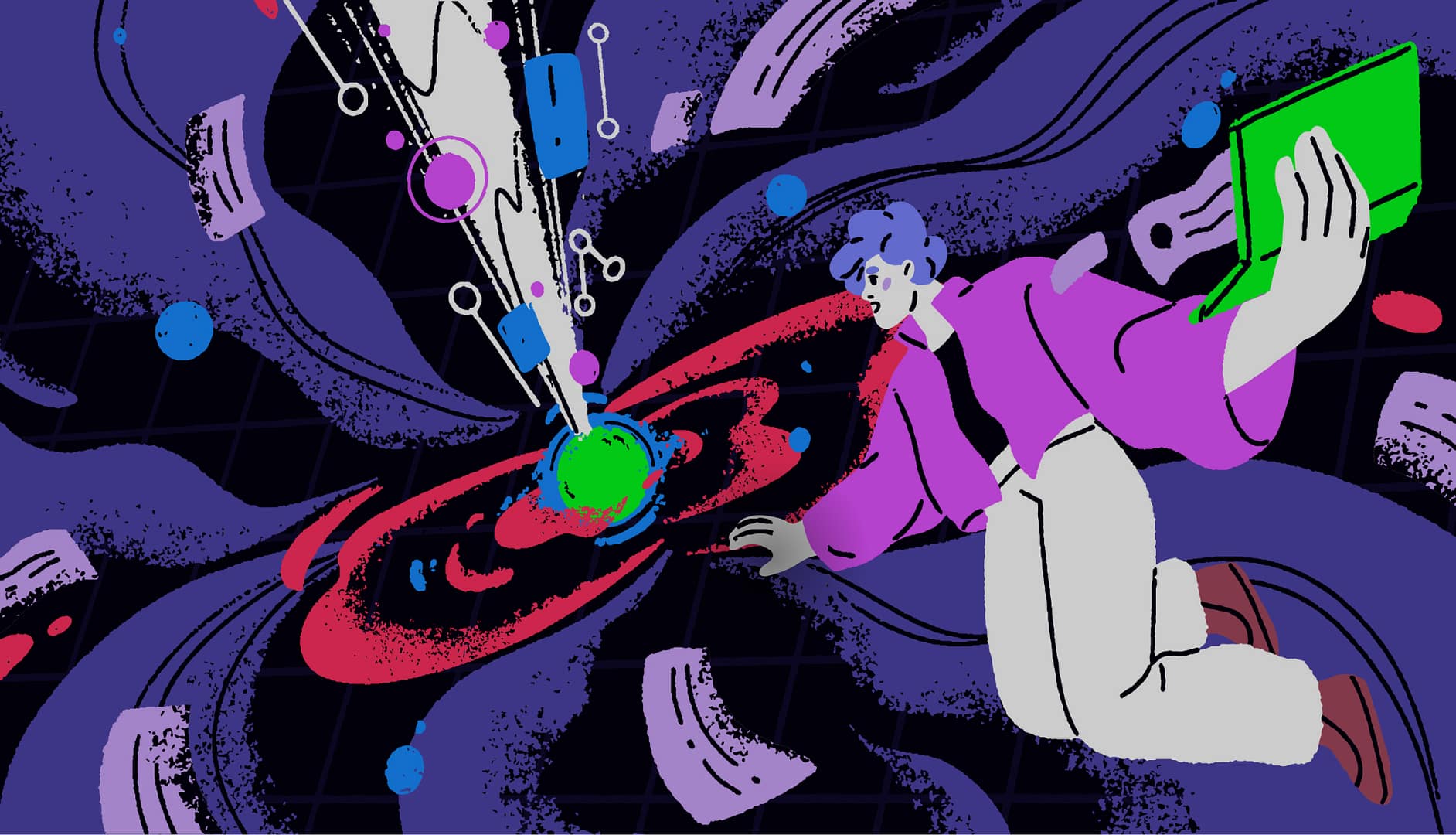
When it comes to technology, creative industries – which thrive on curiosity and novelty – tend to ride fast and high on hype cycles. We’re well-acquainted with the “next big thing” that’s soon cast aside. (Anyone remembers 3D TVs?)
The arrival of ChatGPT, however, feels different.
Most new technologies have transformed the products of creative agencies, but ChatGPT is a product that could transform the strategic and creative process itself. Agencies and consultancies should therefore be seriously considering the potential value that this tool can bring to their businesses.
One of the helpful ways to go about this is to frame ChatGPT as a thinking partner and to explore the two basic thinking styles that underpin the practice of innovation and strategy formation: divergent and convergent thinking. This approach can help us to understand the benefits of ChatGPT, and how we can start capitalising on them.
A discovery tool for divergent thinking
With divergent thinking, we explore the full scope of a given problem or opportunity. We try to figure out exactly what’s going on and why. The goal of this mode of thinking is to think outside the proverbial box, to open up the potential solution space, and to seek solutions that are beyond the realm of the every day and the expected.
ChatGPT can assist with divergent thinking as a pattern-detection tool. In other words: The AI system can codify the “rules” within a given category, and then extrapolate to develop new concepts based on those original rules.
Author Azeem Azhar, for example, describes in a February LinkedIn post how he co-created a board game with ChatGPT. Azeem provided the AI system with two examples of existing board games and then asked it to develop a new board game based on the themes shared by the two examples.
Using ChatGPT to detect patterns and subsequently develop new concepts can enable strategists to make valuable creative leaps (while also saving time).
Decision-making and convergent thinking
Whereas divergent thinking is all about exploring options, convergent thinking revolves around making choices – developing strategies and then validating them.
Coming up with ideas is often the easiest part of the strategy development and innovation process. It’s finding the right idea – one that’s aligned with a real human need or behaviour – that’s the difficult part. This is another point of friction that ChatGPT can help to make a bit more smooth.
Humans are prone to confirmation bias; we prejudicially search for data which support our preexisting beliefs. ChatGPT can mitigate the risk of us falling victim to confirmation bias by presenting us with alternative points of view. (Assuming, that is, we have the courage and clarity of mind to ask it to do so.) In this way, AI can serve as a kind of sparring partner: It can give you a rational argument as to why your original, preconditioned hunch is incorrect, which can in turn, sharpen your thinking and make you less prone to bias.
Risks and opportunities
ChatGPT is a tool that can help creative professionals come up with more high-quality ideas at a quicker rate. It will likely increase the speed and reduce the cost of some key operations.
Over the past two decades or so, we’ve become accustomed to the search prompt as our creative shortcut. Search is beautifully simple, but unidirectional; we ask for something, and it responds in a very predictable way. ChatGPT, in contrast, offers a more collaborative, back-and-forth model that can bump you into a new mental mode, one that’s more playful, more experimental and more creative – somewhere in between traditional search and a human strategic partner.
It isn’t perfect, of course. Like all AI systems, ChatGPT is prone to hallucination and can reinforce – rather than ameliorate – human bias. Moving forward, the creative professionals who will be most well-positioned to leverage ChatGPT effectively will be the ones who understand and respect the AI system’s drawbacks along with its benefits.
This article first appeared in The Drum, written by Tom Gray, Chief Strategy Officer.



